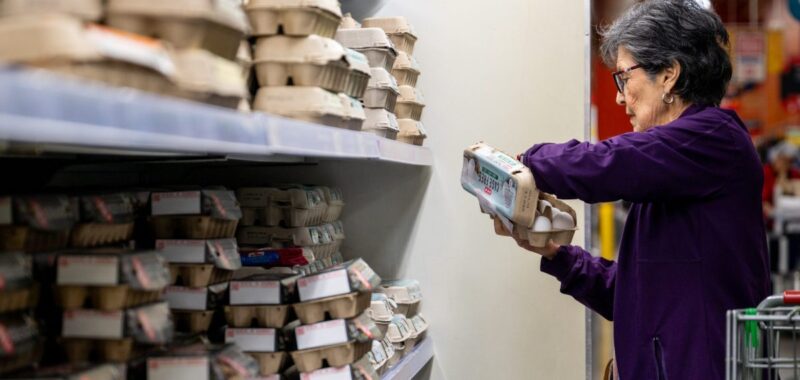
- Plans to lower egg prices could be disrupted by tariffs. The Trump administration in March said it would import eggs from other countries to offset price increases in the U.S. Tariffs, though, could result in higher prices, with one supplier facing 26% tariffs. Agriculture Secretary Brooke Rollins acknowledged the possibility Thursday.
Donald Trump’s plan to lower the price of eggs across America might have been cracked by his desire for tariffs.
Two weeks ago, Agriculture Secretary Brooke Rollins said the Trump administration was planning to import millions of eggs from Turkey and South Korea (among other countries) to increase supply and lower skyrocketing prices.
Those prices have been on the rise due to avian flu concerns, which resulted in the slaughter of millions of chickens and a subsequent shortage of domestically produced eggs.
The tariffs announced this week, however, could result in a price boost, just as egg prices start to decline. Tariffs on Turkey have increased from less than 1% to 10%, while the tax on products from South Korea has soared from 4% to 26%.
Chicken populations are starting to recover from the slaughter, but Rollins acknowledged in her comments last month that it could be a couple months before the industry is back to full strength.
A projection from the U.S. Department of Agriculture, issued March 25, predicted egg prices would increase 57.6% this year. Egg prices have declined in recent weeks, but wholesale prices are still 60% higher now than they were at this time last year, averaging $3 per dozen.
Speaking on Fox News, Rollins acknowledged the tariffs could cause prices to remain high.
“I’m not going to sit here and say, ‘Oh, everything’s going to be perfect and the prices are going to come down tomorrow,’ because this is an uncertain time,” Rollins said.
The U.S. imported more than 1.6 million dozen consumer-grade chicken eggs in January and February.
This story was originally featured on Fortune.com
Source link

